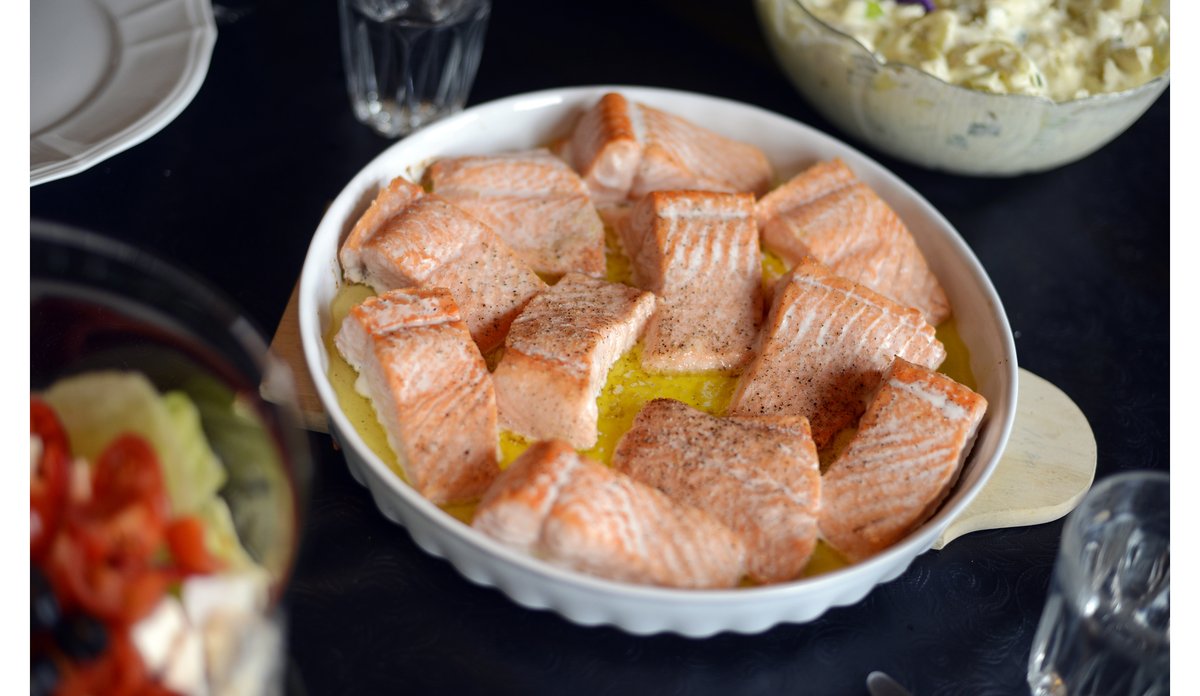Can reduce the risk of cardiovascular diseases

Salmon and fatty fish contain a lot of marine omega-3.
Photo: Helge SkodvinThey link this to the high content of omega-3 fatty acids, EPA and DHA, in seafood. These fatty acids can help to reduce the level of blood lipids and can lessen inflammation in the body. Seafood also contains nutrients such as iodine, vitamin D and marine protein.
Another factor at work may be that the fish and seafood you eat replace other food that may not contribute to a varied diet.
What about lean fish?
Studies show that also fish with a low fat content may help to prevent cardiovascular disease. Examples of lean fish include cod, saithe, pollack, haddock and tusk.
In one study, researchers found that healthy people who ate a lot of lean seafood had a lower risk of developing cardiovascular disease in the future than another group that ate lean meat.
In the same clinical study, researchers found fewer risk factors for developing type 2 diabetes in the group that ate lean seafood.
Scientists also showed that mice that ate lean seafood had less plaque in their aorta than mice that ate lean meat. This kind of plaque is associated with a higher risk of cardiovascular disease.
In other words, the research shows that people and rodents that eat seafood have a lower risk of being overweight and of suffering the associated health problems. However, it is difficult to demonstrate the causal relationship between the two things.
References:
Aadland, Eli Kristin, et al. “Lean-seafood intake reduces cardiovascular lipid risk factors in healthy subjects: results from a randomized controlled trial with a crossover design, 2.” The American Journal of Clinical Nutrition 102.3 (2015): 582-592.
Aadland, Eli K., et al. “Lean Seafood Intake Reduces Postprandial C-peptide and Lactate Concentrations in Healthy Adults in a Randomized Controlled Trial with a Crossover Design–3.” The Journal of Nutrition 146.5 (2016): 1027-1034.
Jensen, Ida-Johanne, et al. “Dietary intake of cod and scallop reduces atherosclerotic burden in female apolipoprotein E-deficient mice fed a Western-type high fat diet for 13 weeks.” Nutrition & Metabolism 13.1 (2016): 8.
Published: 27.03.2019 Updated: 19.06.2019